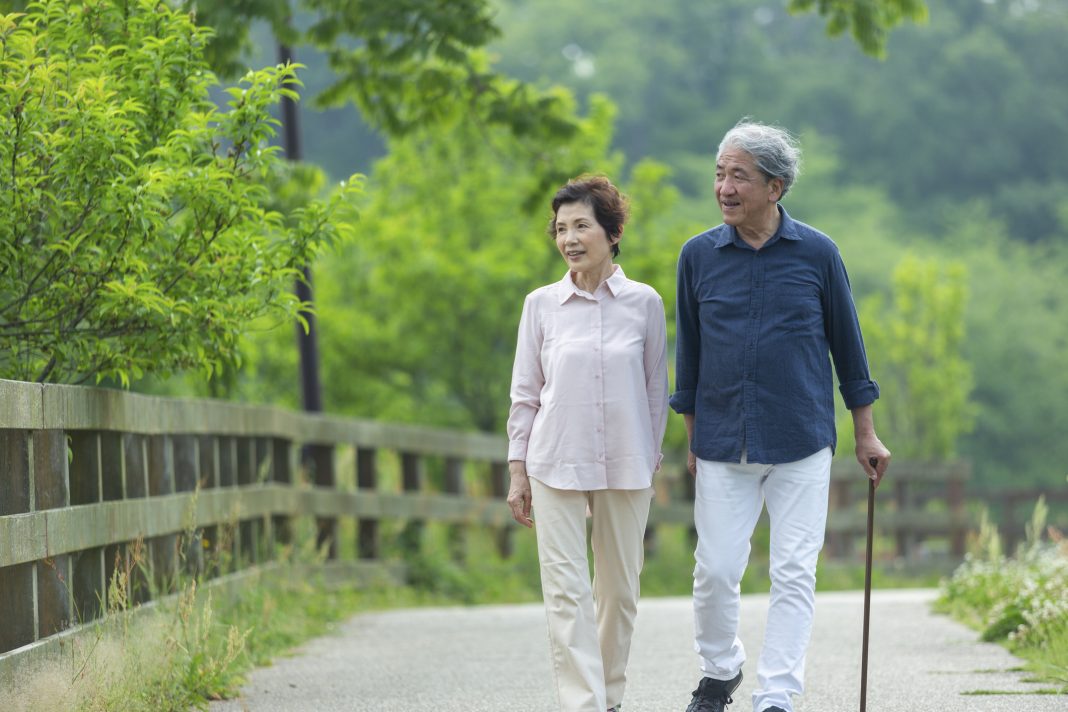Prof Junji Haruta from Keio University highlights Japan’s ageing population, focusing on challenges and innovations in primary care, plus medical education
Japan’s elderly demographics and its implications
Japan has announced in its latest population estimates that the ageing rate for those aged 65 and above has reached 29.0% (Cabinet Office, 2023). This marks a 12-year consecutive decline in Japan’s total population, positioning it as the country with the highest proportion of elderly worldwide. A significant study predicts that by 2040, over 27% of Japan’s elderly population will face limitations in Instrumental Activities of Daily Living (IADL) and social functions (Chen et al., 2016).
Ageing complexities: beyond medical issues
Faced with such demographic shifts, it becomes evident that elderly care is not just a medical issue but also encompasses complex psychosocial challenges. This necessitates a collaborative approach involving healthcare, caregiving, welfare, and community participation, particularly in primary care settings.
Interprofessional collaboration and competency research (Haruta et al., 2018)
My research primarily focuses on how complex community issues and elderly care are addressed in medical education and general practice. One of my published studies investigates the association between healthcare professionals’ subjective perception of complex issues in primary care and their interprofessional competency. The findings suggest that satisfaction in addressing complex problems is linked to interprofessional competency, but the burden of these problems does not decrease correspondingly.
Developing negative capability and mindfulness
In this context, developing ‘negative capability ‘ – the ability to endure stress without rushing to immediate solutions or succumbing to despair – is crucial. Mindfulness practitioners recommend cultivating this capability to manage habitual stress responses, which can be pivotal in reducing the burden of complex challenges (Son et al., 2023).
Real-world learning: students in community diagnosis
Moreover, I have conducted studies exploring how medical students, including those in medical schools, learn in actual community diagnostic settings (Haruta et al., 2023). Comparing online and in-person community diagnosis sessions, it’s evident that while online sessions meet learning objectives, in-person experiences allow students to recognise the gap between pre-researched information and on-site realities, leading to an awareness of their own biases.
Educating against ageism in medical schools
An Early Exposure Programme for first-year medical students addresses ageism, which Palmore defines as negative or positive prejudice or discrimination towards a particular age group (Erdman B. P., 2003). The programme encourages students to listen to the life stories of the elderly, contextualise narrative and literary knowledge, and reflect on ageing and frailty.
Holistic perspectives in primary care and education
In primary care and educational settings, fostering a holistic perspective and linking it to real-world situations is imperative. My ongoing research aims to further develop and implement such concepts in practice.
References
- Cabinet Office. (2023). 2023 White Paper on Ageing Society (Summary Version). https://www8.cao.go.jp/kourei/whitepaper/w-2023/gaiyou/pdf/1s1s.pdf
- Chen, B. K., Jalal, H., Hashimoto, H., Suen, S., Eggleston, K., Hurley, M., Schoemaker, L., & Bhattacharya, J. (2016). Forecasting trends in disability in a super-aging society: Adapting the Future Elderly Model to Japan. The Journal of the Economics of Ageing, 8, 42–51. https://doi.org/10.1016/j.jeoa.2016.06.001
- Erdman, B. P. (2003). Ageism comes of age, The Gerontologist, 43(3), 418–420
- Haruta, J., Yoshida., Goto, M., Yoshimoto, H., Ichikawa, S., Mori, Y., Yoshimi, K., & Otsuka, M. (2018). Development of an interprofessional competency framework for collaborative practice in Japan. Journal of Interprofessional Care, 32(4), 436–443.
- Haruta, J., Ando, T., Fujishima, S. (2023) How do medical students learn in an online community diagnostics program? BMC Med Educ, 10;23(1):15.
- Son, D., Inoue, K., Kamimoto, M., & Taniguchi, S. (2023). Keep thinking about unanswered questions in primary care: Cultivating negative capability. Journal of General and Family Medicine, 24(3), 205–206. https://doi.org/10.1002/jgf2.615

This work is licensed under Creative Commons Attribution-NonCommercial-NoDerivatives 4.0 International.


